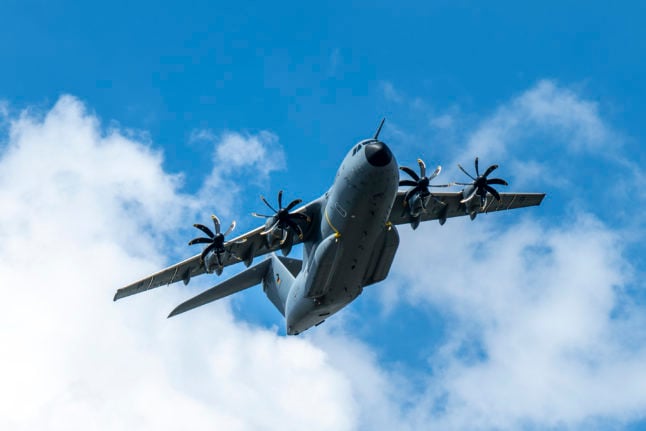The deal was signed in the presence of Ukrainian President Viktor Yanukovych by Shell CEO Peter Voser and Ukrainian Energy Minister Eduard Stavitsky on the sidelines of the World Economic Forum in Davos, a gathering of the world's business and political elite.
Earlier Thursday, Stavitsky put the value of the deal at $10 billion.
Yanukovych said the deal was "only the beginning" and vowed: "From now on we will also be able to find a flexible method of co-operation that will add value to both our countries' economies."
Voser said it was a "very important day for Shell" and acknowledged it was a "big step" for his firm.
The Ukrainian government estimates the eastern Donetsk location may hold three trillion cubic metres (100 trillion cubic feet) of natural gas — enough to last the nation of 46 million people 70 years at current consumption rates.
Shell will sink 15 exploratory wells in the Yuzovska field in an area of 7,000 square kilometres (3,000 square miles), according to Ukraine's Natural Resources Minister Oleh Proskuryakov, cited in the Kommersant daily.
The Shell deal comes amid an upsurge of foreign interest in Ukrainian shale gas — tapped by a controversial process known as fracking — after the industry took off in North America.
Some forecasts suggest that Ukraine alongside countries such as France and Poland may hold some of Europe's largest shale rock deposits.
Stavitsky said earlier Ukraine will be able to completely break its energy dependence on Russia should shale gas production proceed as envisioned under the deal.
"If we follow the optimistic scenario, our existing (energy) deficit problems will be solved," the energy minister said.
Proskuryakov estimated Ukraine could be producing several billion cubic metres of gas per year within 10 to 15 years, which could rise to 10 to 20 billion cubic metres per year.
Stavitsky said Shell's pessimistic scenario foresees seven to eight billion cubic metres of gas per year, with the optimistic projection of 20 billion cubic metres per year.
The production sharing agreement is for 50 years, according to a statement released by the Ukrainian unit of Shell.
Shell will hold 50 percent of the project and the other 50 percent by the Nadra Yuzovska company, which is 90 percent owned by the Ukrainian state.
The remaining stake is owned by a small private firm that the Ukrainian media has linked to family members of Yanukovich.
The production sharing agreement follows an exploration deal Shell signed with Ukraine in September 2011 under which it pledged to invest up to $800 million in exploring for shale gas.
Ukraine lacks the technology to reach the deep-buried shale rock holding the gas and continues to rely heavily on gas imports from its eastern neighbour Russia.
It hopes to renegotiate the terms of a 10-year gas deal it signed in 2009 with Russia that sets high purchase prices.
But Moscow has set Ukraine's membership in a loose Moscow-led trade body as a precondition and also wants partial ownership of Ukraine's gas pipeline and distribution network.
No deal has been reached despite more than two years of talks.
US energy giant Chevron won a tender last year to explore for shale gas in western Ukraine.
A tender to exploit energy resources under Ukraine's part of the Black Sea was won last year by a consortium including Shell and ExxonMobil.


 Please whitelist us to continue reading.
Please whitelist us to continue reading.
Member comments